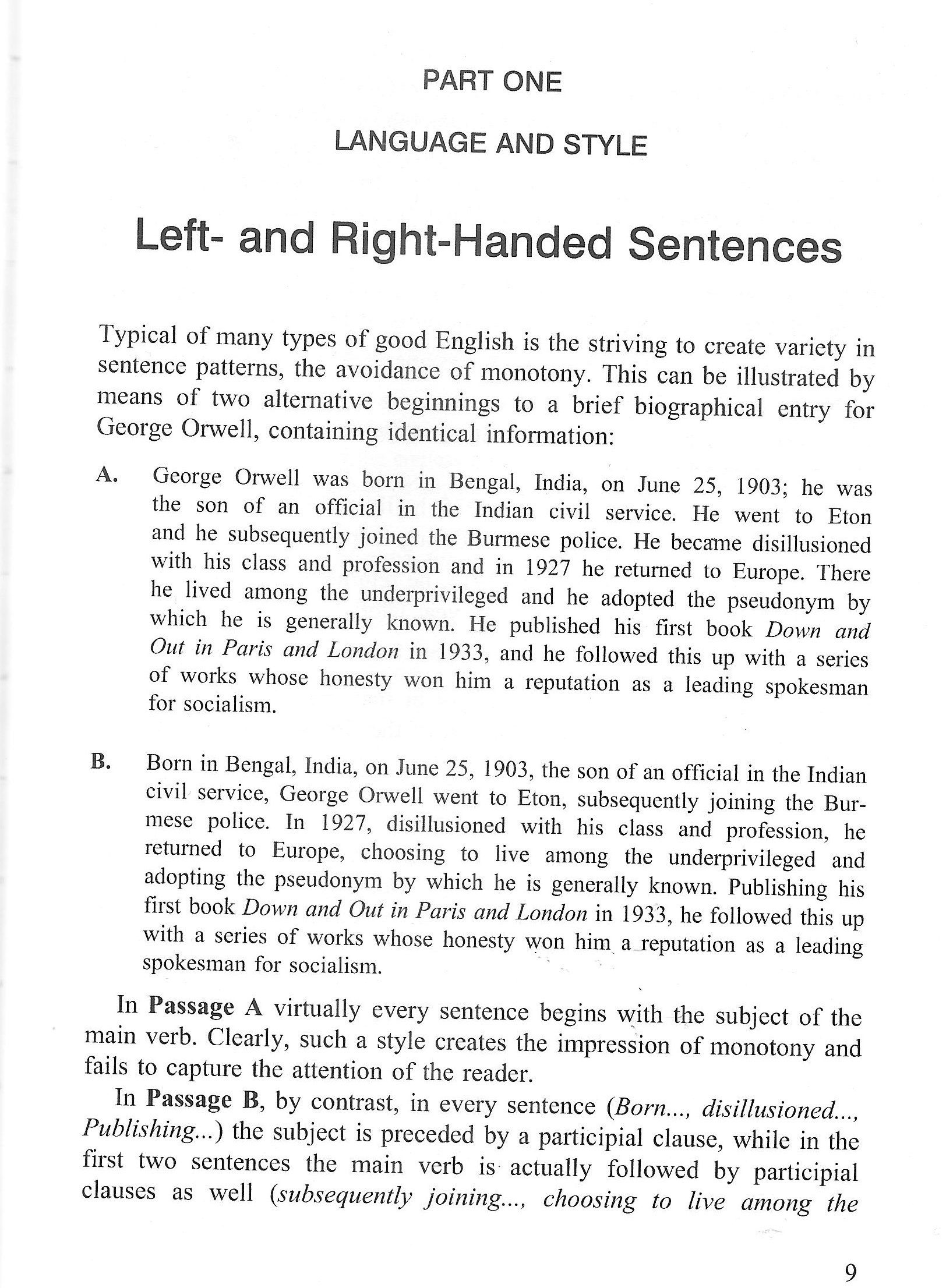macpherson p 9(1)

PART ONE
LANGUAGE AND STYLE
Left- and Right-Handed Sentences
Typical of many types of good English is the striving to create variety in sentence patterns, the avoidance of monotony. This can be illustrated by means of two altemative beginnings to a brief biographical entry for George Orwell, containing identical information:
A. George Orwell was bom in Bengal, India, on June 25, 1903; he was the son of an official in the Indian civil service. He went to Eton and he subseąuently joined the Burmese police. He became disillusioned with his class and profession and in 1927 he returned to Europę. There he lived among the underprivileged and he adopted the pseudonym by which he is generally known. He published his first book Down and Out in Paris and London in 1933, and he followed this up with a series of works whose honesty won him a reputation as a leading spokesman for socialism.
B. Born in Bengal, India, on June 25, 1903, the son of an official in the Indian civil service, George Orwell went to Eton, subseąuently joining the Burmese police. In 1927, disillusioned with his class and profession, he returned to Europę, choosing to live among the underprivileged and adopting the pseudonym by which he is generally known. Publishing his first book Down and Out in Paris and London in 1933, he followed this up with a series of works whose honesty won him a reputation as a leading spokesman for socialism.
In Passage A virtnally every sentence begins with the subject of the main verb. Clearly, such a style creates the impression of monotony and fails to capture the attention of the reader.
In Passage B, by contrast, in every sentence {Born..., disillusioned..., Publishing...) the subject is preceded by a participial clause, while in the first two sentences the main verb is actually followed by participial clauses as well {subseąuently joining..., choosing to live among the
9
Wyszukiwarka
Podobne podstrony:
Easy Tatting (11) Part Two—Easy Chains One shuttle and a second thread from a bali of thread are use
CCF20110611�025 the light of the qua!ity of learning outcomes and vice versa. This kind of joint ref
r Q.P. Codę : 13876 Prajisha Ltd. manufacturos and sales 2,40,000 units of a product in a ycar. The
BIBLIOGRAPHIE Grumont, R.J., Rourke, I.J. and Gerondakis, S. Rel-dependent induction of Al transcrip
DSC07867 (2) 35 and investigated (the valleys of Odra, Warta, Pilica, Vistula, Wieprz and Bug Rivers
Khong, H.T., and Restifo, N.P. (2002). Natural selection of tumor variants in the generation of tumo
Public relations technigues... 169 Public relations can be considered in many different ways. One of
The Mox are a gang in Night City. One of their emblems is "The Mox written in calligraphy. For
246 Stanisław Wilk Only in one case was it possible to obsen e a layered fili of a burial pit. Possi
skanowanie0005 (107) PART ONE Chapter one AIMS AND OBJECTIVES OF FOREIGN LANGUAGE TEACHING 1.0. Term
więcej podobnych podstron